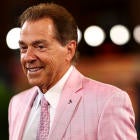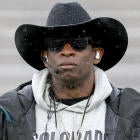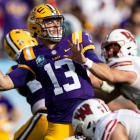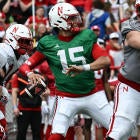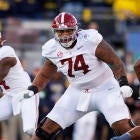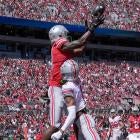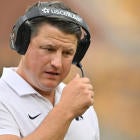The Jeffrey Kessler case is moving forward as a class-action lawsuit. A federal judge on Friday granted class-action status to two lawsuits, including Kessler’s, that are challenging the NCAA’s rules that limit the amount of compensation college athletes can receive.
The certification of the cases allows the lawsuit to move forward against the NCAA and conferences, who have been sued on behalf of Football Bowl Subdivision football players and Division I men’s and women’s basketball players. The certification places more pressure on the NCAA to potentially find a solution on how to compensate college athletes.
The plaintiffs in the case allege that the NCAA and its schools violate federal antitrust law by conspiring to impose a cap on the amount of money a school can provide a college athlete. Without the cap, the plaintiffs argue, schools would compete in recruiting players by offering more generous scholarships.
The plaintiffs were able to persuade U.S. District Judge Claudia Wilken that the issues related to the case are common to a wide class. The NCAA and FBS conferences had argued, in part, that the “substitution effect” and “economics of superstars” would hurt some athletes while benefitting others by allowing players to receive more than their current scholarship value.
But Wilken wrote that those theories “depend on the assumption that schools could not afford to spend more money compensating all student-athletes rather than cutting payments to some.” She concluded that assumption by the NCAA is not supported.
In their arguments, the NCAA and conferences predicted that an injunction would increase the costs to FBS and Division I schools and some would stop participating at that level or reduce their costs, such as offering fewer scholarships. But Wilken stressed that the plaintiffs are not seeking an unrestricted market for player competition.
“Defendants assume that any increase in student-athlete compensation resulting from an injunction would force schools to offset such cost by disadvantaging some members of the proposed classes,” Wilken wrote. “The Court finds insufficient basis for such an assumption, because of schools’ past behavior and alternative available sources of funds.”
Instead, the plaintiffs “persuasively” showed that the NCAA’s predictions that schools “would be forced by budgetary constraints to make decisions leading to intra-class conflicts are flawed," Wilken wrote.
Kessler is a high-profile sports attorney who helped bring free agency to the NFL. Kessler brought the lawsuit on behalf of former Clemson football player Martin Jenkins. The other two plaintiffs for Kessler are current Wisconsin basketball player Nigel Hayes and Wisconsin football player Alec James.
"My reaction is I'm very pleased and I look forward to studying the decision," Kessler said.
Kessler is teaming with attorney Steve Berman, who initially brought a similar lawsuit. Berman's case was brought by former West Virginia football player Shawne Alston, who is no longer a named plaintiff. Other suits were consolidated into the Alston case. Kessler and Berman recently agreed to team up to try the lawsuit and Wilken named them co-lead counsel for the plaintiffs.
Berman described the decision as an "enormous win" for college athletes. "For too long, the NCAA has taken advantage of scholarship protocols that we believe are in direct violation of national antitrust laws -- effectively cheating student-athletes who receive scholarships by thousands of dollars each, each year," he said.
Berman said Wilken "rejected many of the arguments we will see in the opposition to damages so we are pleased all around."
Said NCAA chief legal officer Donald Remy in a statement: "The NCAA and its members award $2.7 billion in athletics scholarships every year to more than 150,000 student-athletes. The plaintiffs continue to misconstrue and inaccurately portray these scholarships. As other federal court decisions have consistently stated, agreeing to appropriate limits on financial aid does not violate antitrust laws."
Wilken is the judge from the Ed O'Bannon lawsuit that found the NCAA's rules limiting compensation for football and men's basketball players violate antitrust law. That decision was upheld by a three-judge panel from the Ninth U.S. Circuit of Appeals, but the judges eliminated Wilken's plan to allow schools to provide deferred compensation to athletes.
The panel's majority ruled that the law requires the NCAA allow schools to provide up to cost of attendance, but doesn't require more. The O'Bannon plaintiffs are attempting to have the case heard through a larger panel from the Ninth Court.












